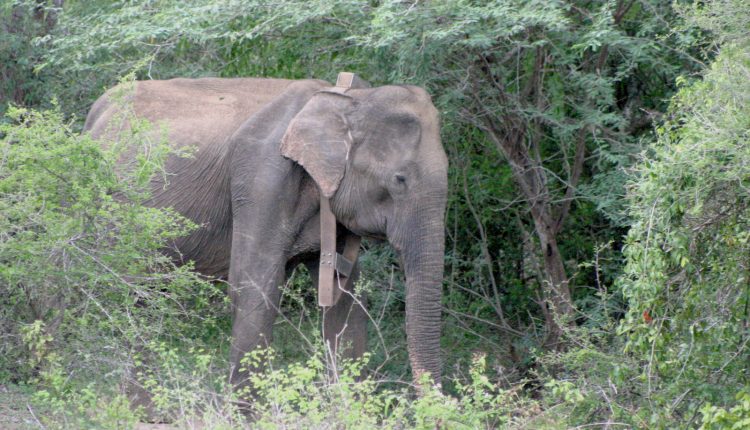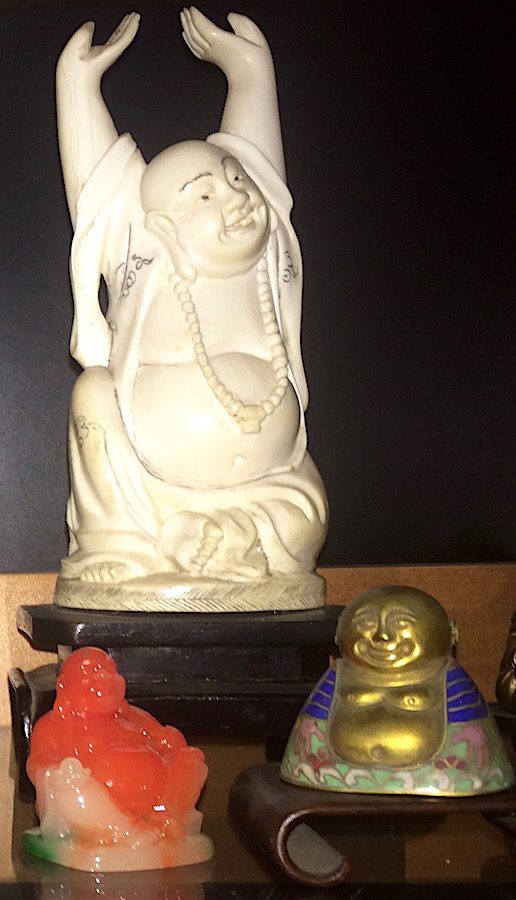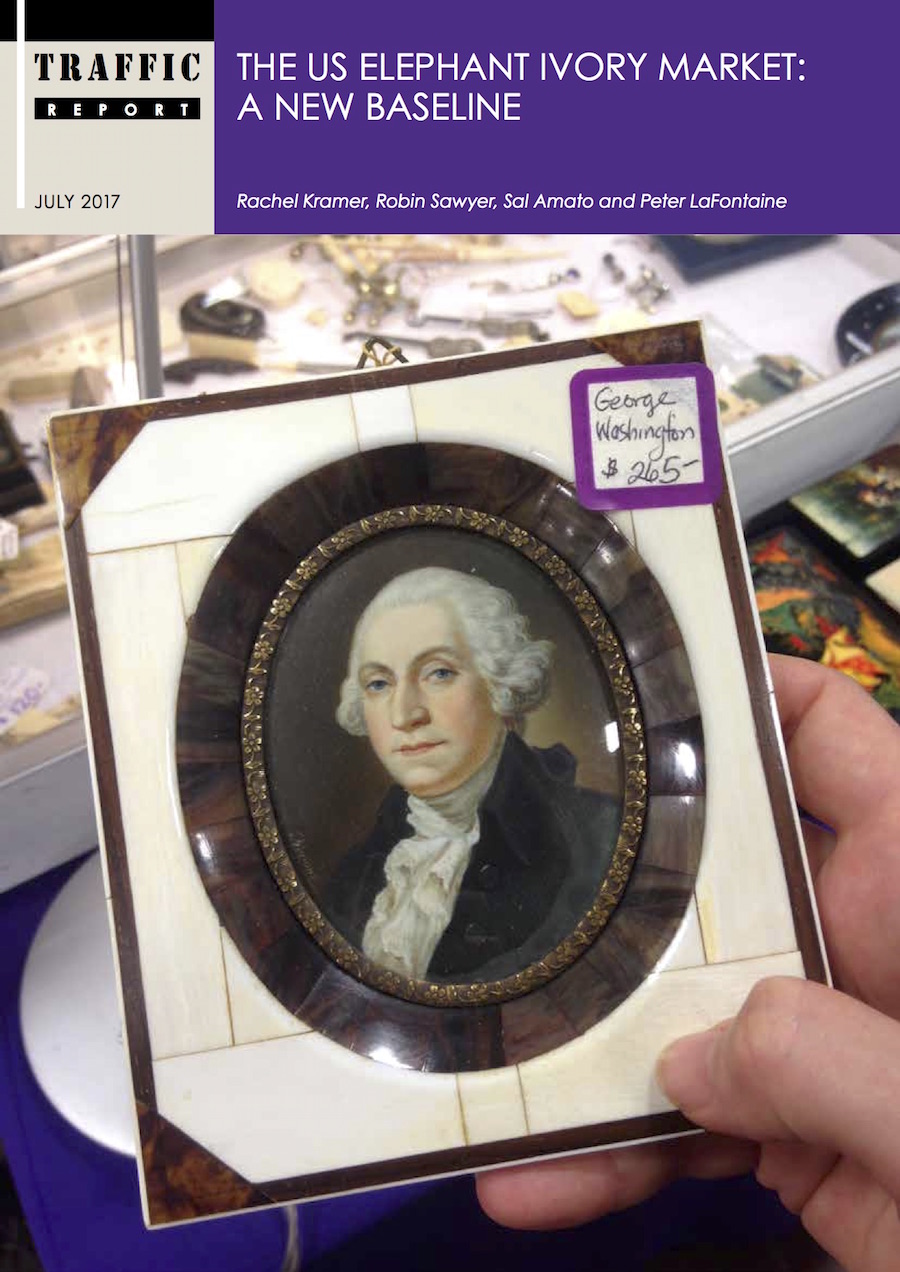
Amid reports of flourishing local trade, DC Council bill would ban sale of ivory, rhinoceros horn
The DC Council is considering legislation that would make the District the first jurisdiction in the Washington area to ban the trade of ivory and rhinoceros horn, over a year after the nation’s capital was exposed as a black-market hub for the U.S. ivory trade.
Despite supportive testimony at a recent public hearing from proponents hoping to diminish the ivory market and its role in the decline of elephants in the wild, the prospects for passage remain uncertain.
Introduced in June 2017 by Council members Mary Cheh, Jack Evans and Anita Bonds, the Elephant Ivory and Rhinoceros Horn Trafficking Prohibition Act would ban the importation, sale, purchase, barter or possession with intent to sell of all ivory and rhinoceros horn products, with limited exceptions. Cheh introduced an earlier version of the bill in June 2015 in the previous council period, but the measure died at the end of 2016 without committee action or a public hearing.

With the current council period set to end in December, the Committee on the Judiciary and Public Safety — where the bill rests — held a public hearing last month on the bill, with animal rights advocates testifying in support. As of 2016, federal law contains a near-total ban on commercial trade across state lines in African and Asian elephant ivory, with a limited exemption for antiques. But federal law does not prohibit the sale of ivory within a state if the seller can prove it was legally imported to the U.S. prior to Jan. 18, 1990.
Nine states — Illinois, California, Hawaii, Nevada, New Hampshire, New York, Oregon, Washington and New Jersey — already have some sort of legislation in place to restrict the sale of ivory, but the District would be the first in the Mid-Atlantic region to impose a ban if lawmakers adopt Cheh’s bill. As noted in a January 2018 article by Pew Charitable Trusts’ Stateline, such bans have generally drawn opposition from groups such as the Antique Dealers’ Association of America that say tighter restrictions will hurt collectors by devaluing items with ivory and prohibiting sales when the necessary documentary is unavailable — all while doing little to save elephants. The National Rifle Association also pushes against restrictions on the grounds that they hurt the value of historic guns with ivory handles.
With the adoption of ivory regulations in other states, DC now has one of the country’s most notorious ivory trade scenes. Yet few outside the industry recognized the scale of the problem until National Geographic published a groundbreaking article last year.
The July 2017 article — “Why D.C. Is the New Hub for U.S. Ivory Sales” — came in response to a nationwide 2016 ivory report from TRAFFIC, a non-governmental wildlife trade monitoring network. “Investigators counted almost three times as many ivory items for sale in the Washington, D.C. area in 2016 than ten years earlier, even as the amount of ivory for sale in other parts of the country had been decreasing.”
The TRAFFIC report analyzed ivory trade levels in major US cities such as Los Angeles, New York City and DC. Locally, the investigation found “each elephant ivory vendor in the greater Washington, DC area had an average of five pieces for sale.”

According to a graph in the report, ivory items were available in Georgetown at two antique shops and from six flea market vendors, with even more discoveries in Kensington, Md., and Chantilly, Va. In all, the report found 68 distinct outlets selling 658 pieces of illegal ivory — mostly bracelets, carved figures and necklaces — in May, June and July of 2016.
“With each new state law, the market has shifted to new jurisdictions and, because the District does not have any laws regulating this industry, the market has moved here,” Cheh said in a statement to The DC Line. “Perhaps if this bill had passed when it was initially introduced, the market would not have moved here at all.”
Environmental advocates during the council’s public hearing on Oct. 4 unanimously supported the legislation and pushed for its enactment. No one testified against the bill.
Patricia Welty — founder and director of A Vegan Life, a DC-based educational nonprofit organization that works nationally to promote veganism — spoke during the hearing of her time in Africa in 1975 and her direct relationship with elephant poaching.
“I remembered learning at the time about elephant poaching, but thinking it couldn’t possibly [have] continued,” Welty said. “I could have never have imagined then that 43 years later I would learn that elephants face extinction.”
In response to Welty’s testimony, Ward 4 Council member Brandon Todd pressed her on whether there’s an urgency for council action.
“There isn’t any issue of the values of this bill, because we all share them here in DC,” Todd said, “but one of the arguments that you are trying to … make is that now is the time where we need to move something like this forward. You have seen actions take place in areas such as New York City, but in DC the area is experiencing something that we have not seen before, thus causing the genesis of this legislation.”
“Exactly,” Welty said.

Gabe Wigtil, wildlife protection manager at the Humane Society of the United States, spoke on behalf of its worldwide affiliate, Humane Society International. Wigtil stressed that the “global poaching crisis is at a tipping point,” and that “we must act now to ensure all of these animals remain in the wild.” Wigtil told the council members that 30 percent of Africa’s elephant population has died from poaching, and only 29,000 rhinoceroses remain in the wild.
Another witness, Tufts University graduate student Chelsea Blink, stressed that DC’s ivory trade is directly contributing to wildlife trafficking as poachers work to keep up with the demand from suppliers in the District and elsewhere.
“For my master’s degree, I studied how policy affects the poaching crisis in the United States and the survival of African elephants,” Blink said. “It is my opinion that shutting down the ivory trade in the United States is an important step towards ending poaching and saving the elephant population.”
After the public testimony, Ward 6 Council member Charles Allen, chair of the Judiciary and Public Safety Committee, sought opinions on the appropriate legal definition of “ivory.” All of the public speakers said they are satisfied with the bill’s current definition of ivory as the material coming from the horn or tusk of an African elephant or rhinoceros.
Interested DC residents can sign an online petition on the Animal Welfare Institute’s “Compassion Index” that urges Allen to move the bill out of committee and on to the full council for consideration.
Allen’s office did not respond to a request for comment on his plans for the legislation. If there’s no action on the bill in committee this year, a spokesperson for Cheh’s office said, the Ward 3 legislator will reintroduce the bill in January when the next council period begins. Council rules permit the hearing record to roll over to the next term.


Comments are closed.